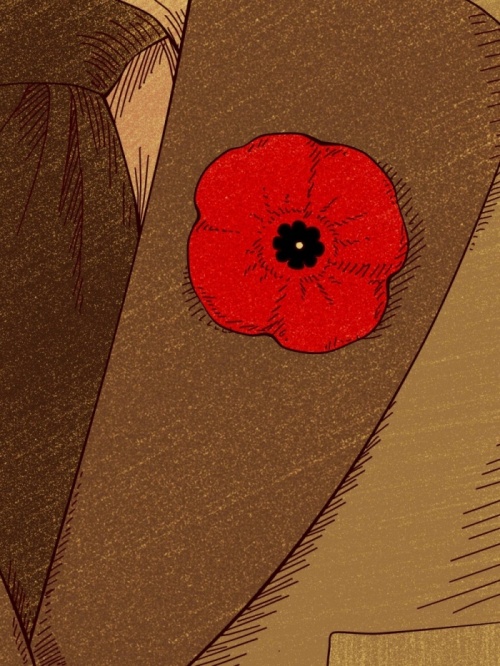As Remembrance Day approaches, Demilitarize McGill has once again been causing controversy on campus. This year, the group announced a campaign called #RememberThis, which calls for McGill students to physically disrupt or deface sites on campus that memorialize war. Their announcement has sparked both debate and outrage on social media, reminiscent of the backlash that emerged after the group’s silent protest at McGill’s Remembrance Day ceremony last year.
While the group’s controversial actions have helped it to garner more attention, the radical steps that Demilitarize McGill has undertaken in the past has discredited its movement by making its message less clear, and this has harmed the group’s relationship with the student body. However, in order to better engage the McGill community to support its cause of ending the university’s involvement with the military, Demilitarize McGill should take a cooperative rather than combative stance towards Remembrance Day.
Remembrance Day is when students are most likely to think about Canada’s role in global conflicts, as the nation takes the time to reflect on the horrors of war. Unfortunately, Demilitarize McGill holds a firm belief that the commemorations serve to glorify warfare; however, the fundamental purpose of the day is to solemnly honour fallen soldiers and reflect on the sacrifices that they made. If anything, there is a strong link between this message and the movement’s overarching mission of encouraging peace and pacifism. If Demilitarize McGill feels that Remembrance Day at McGill is wrongly focused on celebrating Canada’s military, the group should make a cooperative attempt to shift the conversation towards memorializing the victims of war, and remembering the lives that were lost to ultimately end conflicts.
Discussions about the atrocities and horrors of war—such as the loss of Canadians' lives in the Battle of Passchendaele during the First World War—can set up a valuable emotional foundation for Demilitarize McGill to share its stance about current world conflicts and why it believes the university should not be complicit in the development of military research.
While it could be argued that the group is already contributing to the conversation through protests and conferences, there is an important distinction to be made between joining a dialogue and attempting to dismantle it. The difference was best seen in the wake of its protest of the 2014 Remembrance Day ceremony. While the group raised valid points about some of the negative aspects of Canada’s military history, mainly by presenting facts about the rate of sexual assaults and torture committed in the army, these were not presented in a constructive manner because the context in which they were acting overshadowed their message. It was clear that the group intended to disrupt an inherently peaceful event; therefore, the resulting polarization of the conversation made it nearly impossible for McGill students to take part in the group’s message and naturally integrate it into a constructive conversation about war and Remembrance Day. Instead, Demilitarize McGill’s social media pages were flooded by hate comments and kneejerk responses.
Remembrance Day has a place for a wide spectrum of voices and sentiments. This is perhaps best illustrated by the usage of the white poppy, which is worn by some pacifists as an alternative to the traditional red poppy. The white poppy is a poignant yet respectful way for individuals who are strongly against warfare to display their condolences for the human sacrifices while expressing an alternative perspective on Remembrance Day. Demilitarize McGill should take approaches such as this to creatively express their stance alongside the tradition of Remembrance Day.
Regardless of the organization’s actions and the image it has built on campus in the past, there is potential to generate empathy and even support for Demilitarize McGill’s mission and overarching mindset. Moving forward, the group must find ways to engage students in a way that does not take away from the traditions of Remembrance Day, but instead builds on them.










